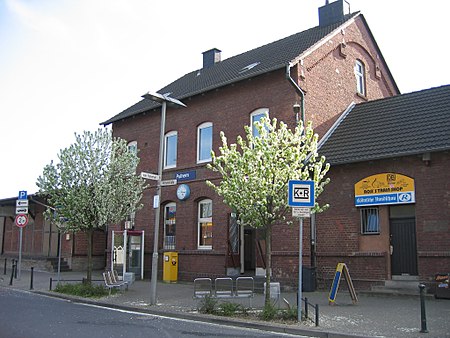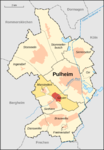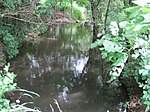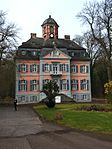Pulheim station
Buildings and structures in Rhein-Erft-KreisRailway stations in Germany opened in 1899Railway stations in North Rhine-Westphalia

Pulheim is a station in the city of Pulheim in the German state of North Rhine-Westphalia. It is on the Cologne–Mönchengladbach railway. It lies between Köln-Bocklemünd station, which was closed the 1970s, and Stommeln station, 11.5 km from Köln-Ehrenfeld station. The railway line was opened on 1 April 1899 after years of dispute over the precise course of the line. The section from Grevenbroich to Pulheim had actually been completed six months earlier. Pulheim station is on the south-western edge of the old town with the tracks running southeast–northwest. Until 2007, the building had housed a local dispatcher; the route is now controlled from Duisburg.
Excerpt from the Wikipedia article Pulheim station (License: CC BY-SA 3.0, Authors, Images).Pulheim station
Geyener Straße,
Geographical coordinates (GPS) Address Nearby Places Show on map
Geographical coordinates (GPS)
| Latitude | Longitude |
|---|---|
| N 50.998056 ° | E 6.797222 ° |
Address
Pulheim
Geyener Straße
50259
North Rhine-Westphalia, Germany
Open on Google Maps










